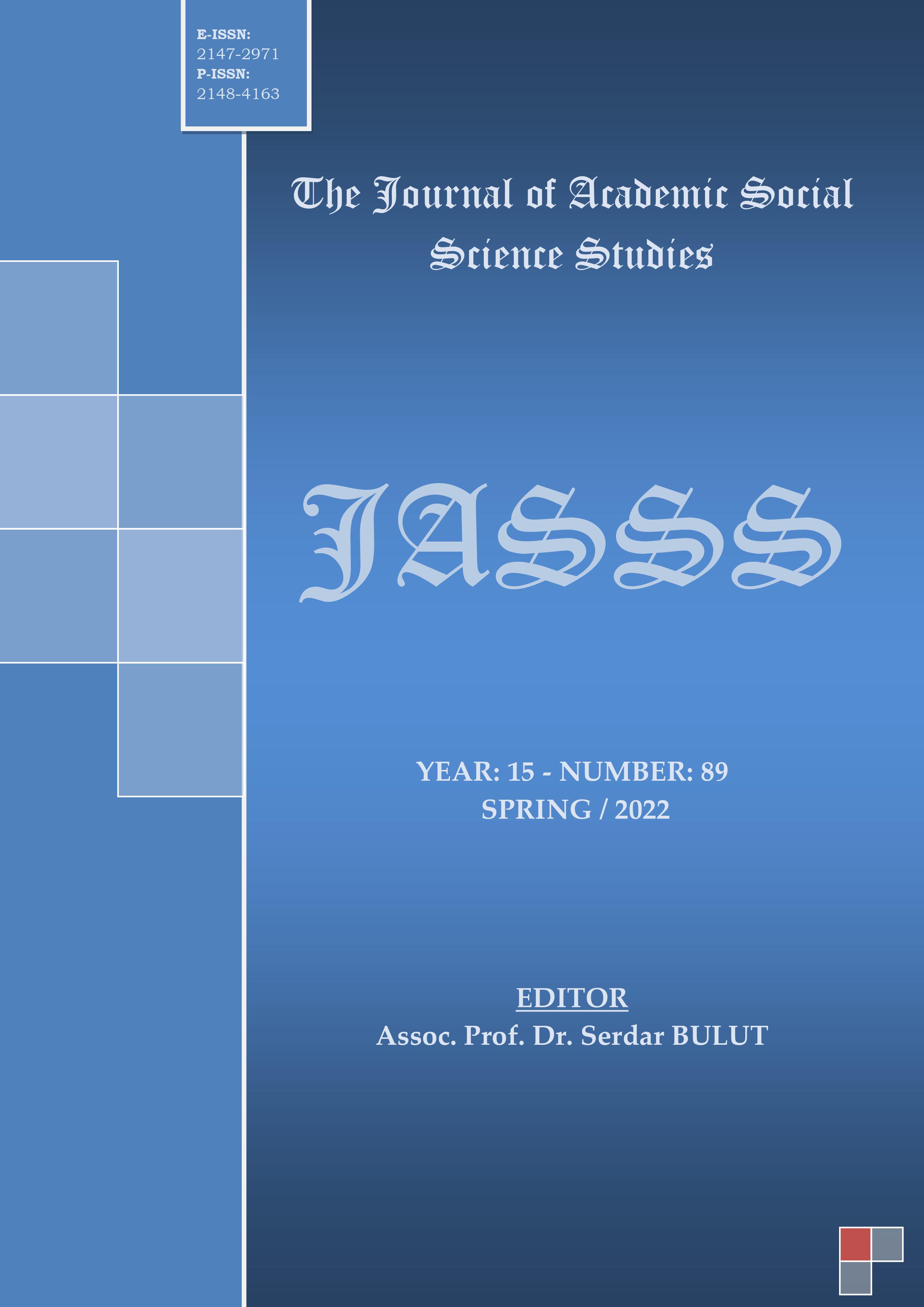Author :
Abstract
İkinci Dünya Savaşı'nı takip eden on yıllarda, Amerikan toplumunda sosyal, ekonomik ve politik yaşamda hızlı değişimlere tanık oldu. Savaş sonrası dönem, geçmişin korkunç deneyimlerinden barış ve teselli arayan bir nesil üretirken, savaş hayatta kalanların ruhunda derin izler bıraktı. Eşsiz bir ekonomik büyüme ile birlikte barış ve sükunete duyulan umutsuz ihtiyaç, halkın dikte edilen değerleri sorgulamadan kabul etmesine neden oldu. Muhalif sesler bastırılırken, aynılığa bağlılık modern toplumun normu haline geldi. Ken Kesey'in romanı Guguk Kuşu (1962), savaş sonrası bireyselliğin bastırılmasını yansıtır. Hikaye, Şef Bromden'in daha önce katı hastane personelinin elinde bir gölgeye indirgendiği hastane koğuşunda yaşadığı üzücü deneyimler etrafında dönmektedir. Buradaki hastalar, Hemşire Ratched başta olmak üzere hastanedeki tüm hastalar otorite figürlerinden korkmaktadırlar. İlaçlarına ve diğer temel ihtiyaçlara erişimi kısıtlayarak onlar üzerinde tam bir yetki kullanır. Bütün hastalar onun otoritesini sorgulamadan, otoritesine boyun eğmiş durumdadır. McMurphy'nin sahneye çıkmasıyla, Hemşire' nin etkisi kademeli olarak sona erer. McMurphy vekil bir baba gibi davranır ve hastaların erkekliklerini geri kazanmalarına yardımcı olur. Kırılgan Şef Bromden zihinsel bir olgunlaşma sürecinden geçer ve hastaneden kaçar. Şef, erkekliğini geri kazanırken, Amerika'da savaşın ardından meydana gelen değişikliklerle paralellik gösteren toplumsal beklentilere yanıt vermektedir. Bireyselliği ezen konformist ideallerin egemen olduğu savaş sonrası toplumda, Şef dış dünyanın bireyselliğini kabul etmesini sağlar ve topluma reformlu bir birey olarak katılır. Şef Bromden' in problemlerinin altında yatan nedenler, toplumu gizli bir tehdit olarak gören kuruntusal fantezisi, Büyük Hemşirenin erkeksizleştirici tavırları ve McMurphy'nin Şefin erkekliğini tekrar kazanmasındaki rolü analiz edilecektir..
Keywords
Abstract
The decades following Second World War witnessed rapid changes in social, economic, and political life in American society. The war took its toll on the psyche of survivors while the post-war era produced a generation seeking peace and solace from the horrible experiences of past. The desperate need for peace and serenity along with an unparalleled economic growth caused the public to accept dictated values unquestioningly. While the dissident voices were repressed, devotion to the sameness became the general norm of the modern society. Ken Kesey’s novel One Flew Over the Cuckoo’s Nest (1962) reflects the post-war suppression of individuality. The story revolves around the Chief Bromden’s harrowing experiences in hospital ward where he was formerly reduced to a shadow at the hands of strict hospital staff. All the patients in the hospital are afraid of authority figures, especially Nurse Ratched. She exercises a complete authority over them by restricting access to their medication and other basic needs. All the patients have submitted to their authority without any protest. With the introduction of Randle McMurphy, the Nurse’s influence comes to a gradual end. McMurphy acts as a surrogate father and helps patients to reclaim their masculinity. The fragile Chief Bromden goes through a mental maturation and escapes from the hospital. In reclaiming his masculinity, the Chief rejects the social expectations which parallels with the changes that took place in the aftermath of war in America. The post-war society, which was dominated by conformist ideals that crushed individuality, Chief achieves the outside world to acknowledge his individuality and joins the community as a reformed individual. The underlying reasons of Chief Bromden’ s problems, his delusional fantasy of perceiving society as a threat, the emasculating treatments of the Big Nurse, and McMurphy’s role in reclaiming the chief’s masculinity will also be analyzed.
Keywords
- Boothby, R. (1991). Death and Desire: Psychoanalytic Theory in Lacan's Return to Freud. New York: Routledge.
- Boothby, R. (2001). Freud as Philosopher: Metapsychology After Lacan. New York: Routledge.
- Carnes, B. (1974). Western Writers Series, No 12: Ken Kesey. (Eds. W. Chatterton and J. H. Maguire). Idaho: The Caxton Printers.
- Dor, J. (2004). Introduction to the Reading of Lacan: The Unconscious Structured like a Language. New York: Other Press.
- Fiedler, L. A. (1968). The Return of the Vanishing American. New York: Stein and Day.
- Kesey, K. (1963). One Flew Over The Cuckoo's Nest. New York: Signet.
- Kunz, D. (1992). Mechanistic and Totemistic Symbolization in Kesey's One Flew Over The Cuckoo's Nest. (Ed. G. J. Searles). A Casebook on Ken Kesey's One Flew Over The Cuckoo's Nest İçinde (p. 82-101). Albuquerque: The University of New Mexico Press.
- Malin, I. and Kesey, K. (1973). One Flew Over the Cuckoo's Nest. (Ed. J. C. Pratt). Ken Kesey, 1963: One Flew Over The Cuckoo's Nest: Text and Criticism İçinde (p. 429-434). New York: Penguin Books.
- Martin, T. (1992). One Flew Over The Cuckoo's Nest and the High Cost of Living. (Ed. G. J. Searles). A Casebook on Ken Kesey's One Flew Over The Cuckoo's Nest İçinde (p. 25-39). Albuquerque, The University of Mexico Press.
- Scally, T. (tsz). Origin and Authority: An Analysis of the Relation between Anonymity and Authorship in Kesey's One Flew Over the Cuckoo's Nest. http://go.galegroup.com/ps/i.do?&id=GALE%7CH1100055042& v=2.1&u=bel82055&it=r&p=LitRC&sw=w (Accessed: 29.11.2021).
- Waxler, R. P. (2007). The Mixed Heritage of the Chief: Revisiting the Problem of Manhood in One Flew Over The Cuckoo's Nest. (Ed. H. Bloom). Bloom's Modern Critical Interpretations: Ken Kesey's One Flew Over The Cuckoo's Nest İçinde (p. 151-160). New York, Infobase Publishing.
